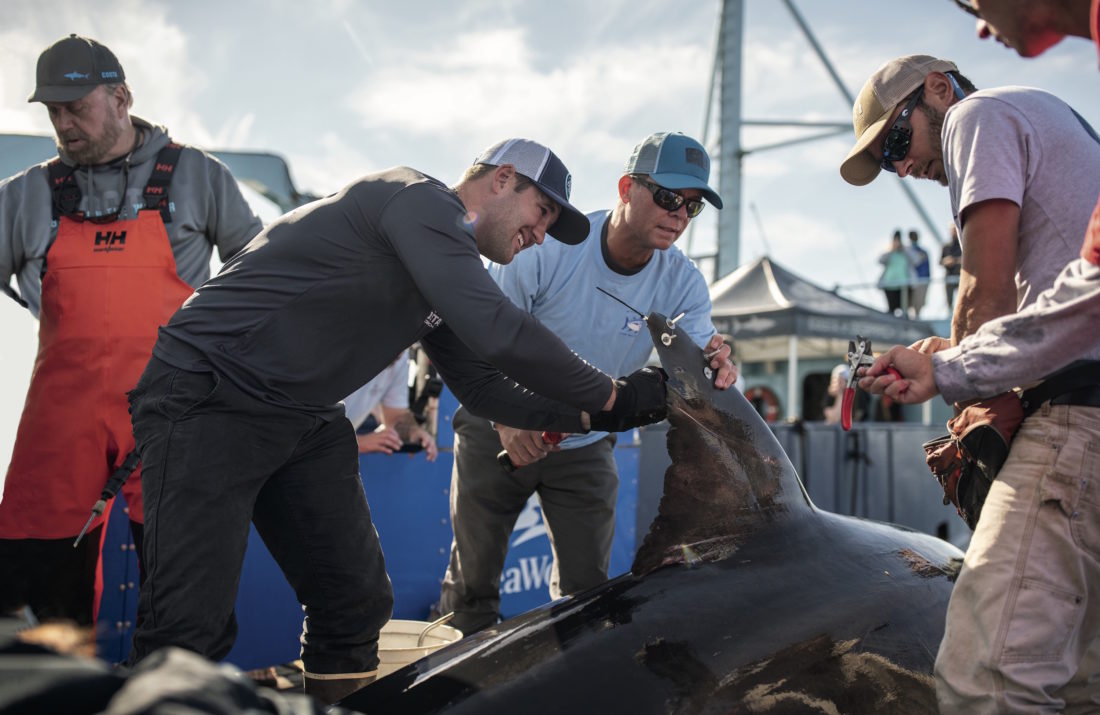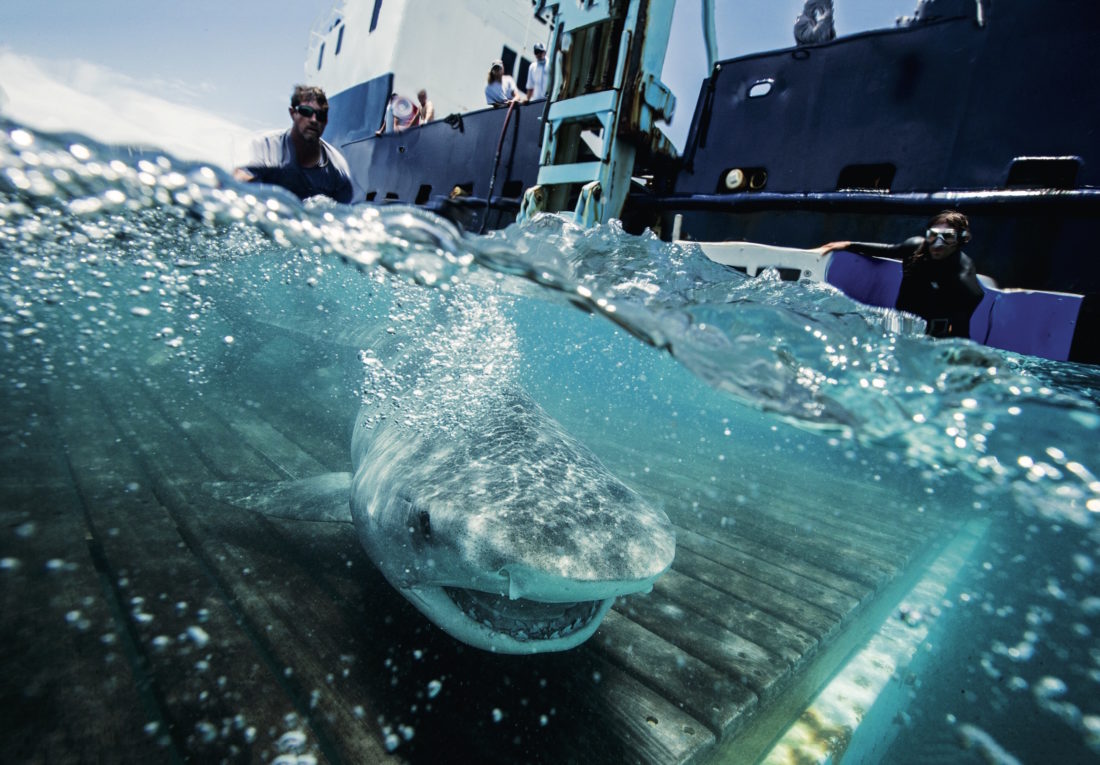Editor’s note: This article first appeared in G&G Jr., created by the editors of G&G in partnership with Destin-Fort Walton Beach, Florida. The special issue is packed with articles, quizzes, games, pirate jokes, and more to inspire kids to explore and preserve the coastal South. Click here to receive a complimentary digital issue.
Chris Fischer (yup, that’s his real name!) and his team at Ocearch have been studying sharks aboard a floating laboratory since 2007. They’ve caught, tested, released, and tracked more than four hundred great white, tiger, and mako sharks in places like the South Carolina Lowcountry, Nova Scotia, the Gulf of Mexico, and far out in the Atlantic Ocean. This helps us understand where sharks spend their time and how we can best protect these creatures. We asked kids if they had any jawsome questions for Fischer.
How do you catch sharks?
—Brayden, 11, Mendon, MA
CF: We have a special lift that goes over the side of our ship. We swing the shark into the cradle, then lift it out of the water and put a hose in its mouth so that it can breathe. In fifteen minutes, we check its blood, measure its body, put a tracker on its fin, among other things, and then lower it back in the water and let it go. Then for five years [until the tracker’s battery runs out], every time the shark sticks its dorsal fin out of the water for more than a minute and a half, we get its location.
Why is it important to track sharks?
—K’miya, 10, Nashville, TN
CF: Tracking allows us to see where the sharks are going, where the baby sharks are being born, and what the sharks’ migratory pattern is. Sharks are the balance keepers of the ocean. They’re at the top of the food chain, and they prevent the second tier [like seals and stingrays] from exploding in numbers and wiping out all the fish humans need to eat. On the coast, if sharks aren’t around, rays eat all the shellfish—no more scallops and clams. On the reefs, without sharks, groupers and snappers will eat all the fish that pick at the reef and maintain it, and the reef will die. So the sharks are the key. They shape the whole ocean system so it’s balanced and full of fish.
Do sharks sleep?
—Hampton, 9, Charleston, SC
CF: There are some species of sharks [like nurse sharks] that can sit on the bottom of the ocean and sleep. But we don’t yet know how the great white shark sleeps. It needs to keep moving forward at all times to push the water through its gills in order to breathe. It may glide down on deep, deep dives and shut off portions of its brain, but we just don’t know for sure.
Do sharks travel a lot?
—Hannah, 8, Haymarket, VA
CF: Sharks move a tremendous amount. White sharks travel up to twenty-five thousand miles a year, and can move a hundred miles a day. They’re constantly swimming around at, on average, four miles an hour.

What do sharks eat?
—Anthony, 6, Inman, SC
CF: Whatever they want! For white sharks, most of their diet is fish and squid. They also eat marine mammals, like seals or dead whales.
Does the increase in ocean plastic affect sharks?
—Cole, 17, Wilton, CT
CF: Yes, it affects them a lot. Sharks are what’s called bioaccumulators, which means as little fish eat things that have plastic in them, and then bigger fish eat those fish plus other plastic in the water, when it gets to white sharks at the top of the food chain, they end up with the maximum amount of contaminants that are in the ocean system. That’s why they’re a good indicator of ocean health.
When sharks lose their teeth, do they grow back?
—Asa, 7, Watkinsville, GA
CF: Sharks have a continuous conveyor belt of teeth being produced over the course of their lives. They’ll grow and replace thousands of teeth over their life span.
The song “Baby Shark”— cool or annoying?
—Aria, 7, Fairfield, IA
CF: I think the song is great. It gets people thinking about sharks, and that’s fantastic. I’ve definitely had fun with it with my kids.
How do you become a shark researcher?
—Keegan, 7, Hillsboro, IL
CF: Spend a lot of time outside while you’re a kid. As you go through school, take advantage of biology classes and camps. When you’re in college, one of the best things to do is find a teacher you really like to work with and start assisting him or her. Another important thing is to be creative. For example, learn how to make a little film about what you’re doing so you can communicate why your work is important and help people understand how the ocean works.









